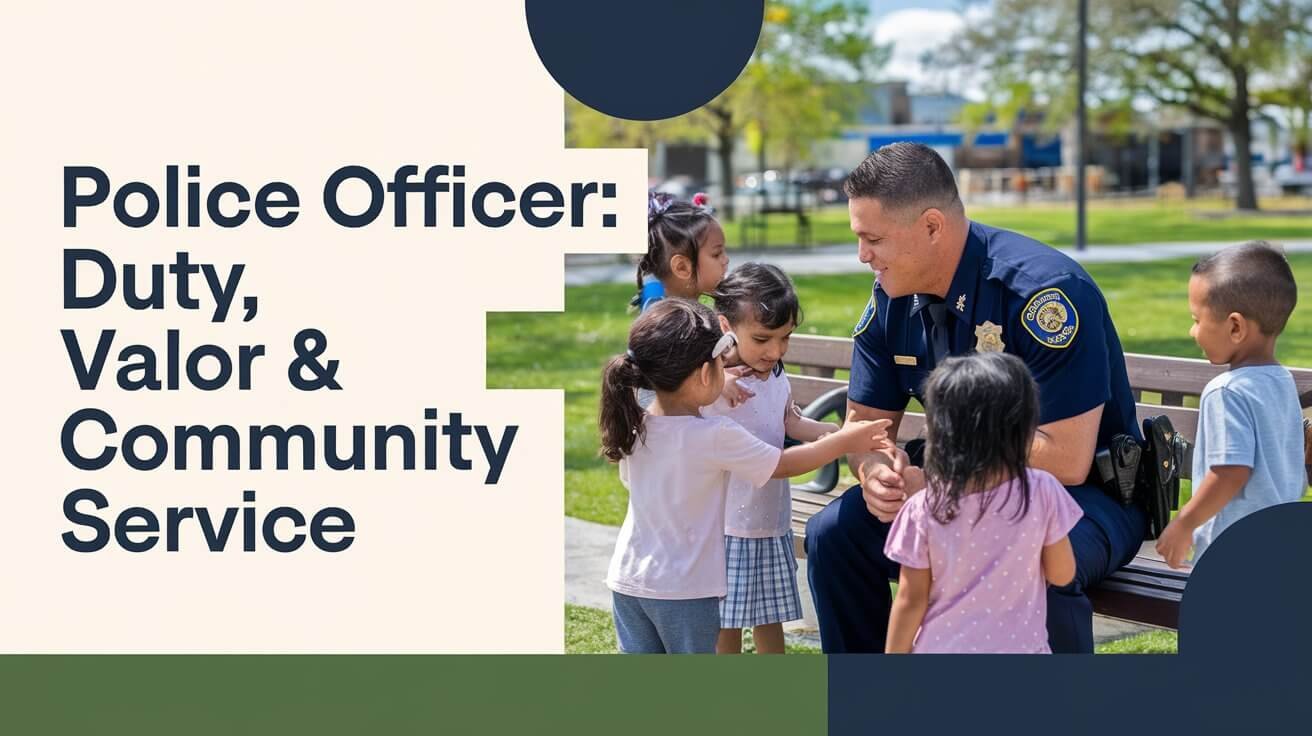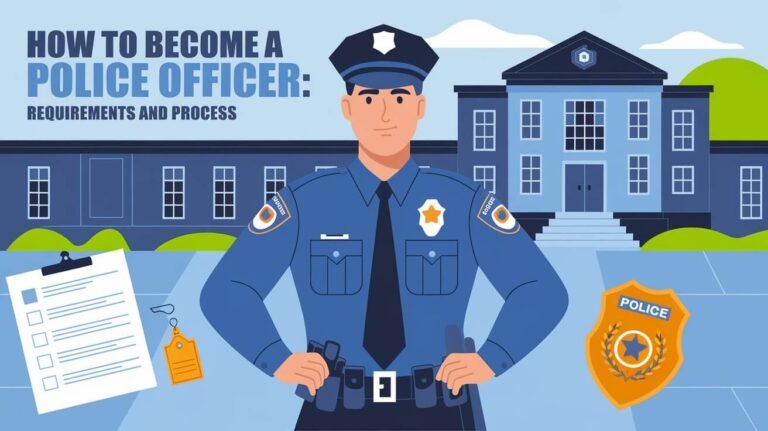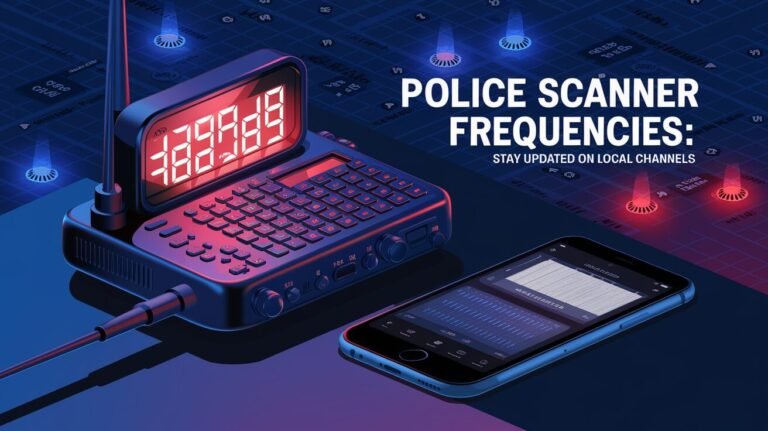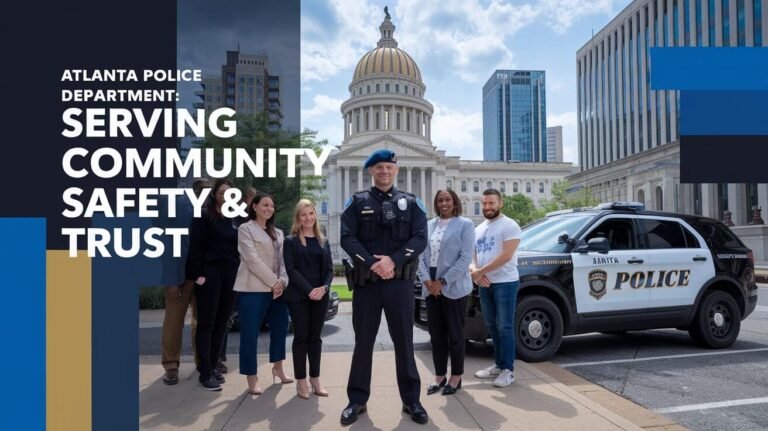Police Officer: Duty, Valor & Community Service

Becoming a police officer is a rewarding career that needs dedication and hard work. The Tustin Police Department has many opportunities, like Police Recruit and Lateral Entry positions. To start, you must go through police training at a POST approved academy, which takes about six months.
There are different paths to become a police officer, including full-time and part-time roles. The Tustin Police Department looks for candidates who have finished or are in a POST approved academy. They offer good pay and benefits for Lateral Entry officers. Knowing the requirements and opportunities is key to success in this field.
Daily Life in Law Enforcement
Being a police officer means your day can change a lot. It depends on where you work and the department you’re with. You’ll often be on the road, answering calls and talking to people. It’s a job that’s both physically and mentally tough, with long hours and stressful situations.
Police officers have many tasks. They check their gear, handle routine calls, and do community work. They also do paperwork and reports. The job is unpredictable, with sudden emergencies and unexpected calls.
Patrol Responsibilities
Patrol duties differ by department and location. Some officers patrol high-crime areas, while others focus on community work. Key tasks include:
- Responding to emergency calls and incidents
- Conducting traffic stops and enforcing traffic laws
- Engaging in community policing activities and building relationships with local residents
- Identifying and investigating suspicious activity
Emergency Response Duties
Police officers also handle emergency situations. This includes natural disasters, accidents, and violent crimes. These duties are demanding, requiring quick thinking and sound decisions.
Administrative Tasks
Administrative tasks are a big part of the job too. Officers fill out reports, manage paperwork, and testify in court. These tasks are vital for the department and the justice system.
| Task | Frequency | Importance |
|---|---|---|
| Patrol duties | Daily | High |
| Emergency response | As needed | High |
| Administrative tasks | Daily | Medium |
Police Officer Training Academy Experience
Becoming a law enforcement officer starts with the police academy. In the U.S., training lasts about five months, or 833 hours. The time can vary from 12 to 27 weeks, depending on where you are.
Recruits learn a lot in the academy. They get classroom lessons and practical training. This mix helps them deal with real-life challenges. Key parts of training include:
- Identifying and responding to excessive force
- Physical fitness assessments, such as obstacle courses and sprinting
- Classroom instruction on law enforcement procedures and protocols
Attending a police academy costs around $2,000. Recruits also pay for background checks, fingerprinting, and uniforms. The Illinois Law Enforcement Training and Standards Board offers details on police training.
| State | Training Duration | Tuition |
|---|---|---|
| Washington | 12 weeks | Varies |
| Oregon | 16 weeks | Varies |
| North Carolina | 20 weeks | $2,000 |
The police academy is tough but essential training. It mixes classroom learning with practical skills. This prepares recruits for a career in law enforcement.
Physical and Mental Requirements
To become a police officer, you need to meet certain physical and mental standards. Being physically fit is key, as officers must perform at their best in tough situations. This includes running, climbing, and crawling. They also need to be mentally strong to handle stress and make fast decisions.
Officers must pass physical tests to stay on the job. These tests include a stress course for firearms training. This course has tasks like running, climbing, and crawling. Background checks are also done to make sure officers are safe and fit for duty.
Fitness Standards
The fitness standards for police officers include:
- Running 100 yards at a jogging pace
- Climbing over a 6-foot high wall
- Crawling through a 3-foot high and 6-foot long tunnel
- Crossing a 10-foot long foot log
- Scaling a 4-foot high fence
Psychological Evaluations
Psychological tests are used to check an officer’s mental health. They look at how well they handle stress and make quick decisions. Background checks are also done to check for any mental health issues that could affect their job.
| Category | Requirement |
|---|---|
| Vision | Corrected vision of 20/20 or better |
| Hearing | Normal hearing standards |
| Physical Fitness | Meet minimum POST and departmental fitness standards |
Career Growth and Advancement Options
A career in law enforcement offers many chances for growth and promotion. Police officers can become detectives, sergeants, and lieutenants with experience and more education. The Illinois Law Enforcement Training and Standards Board says law enforcement careers are stable. This is because there’s always a need for police services, making job prospects strong.
Several factors help in career growth and advancement in law enforcement:
- Education: Many police departments look for or require college coursework. About 30% of police officers have a college degree.
- Experience: Field training and regular patrols help officers gain valuable experience. This prepares them for higher positions.
- Performance: Good career development leads to higher job satisfaction and better performance. It improves their knowledge, skills, and abilities (KSAs).
Police officers can look forward to promotions as they gain experience and complete more training. The median salary for police and detectives is $74,910 a year, the United States Bureau of Labor Statistics reports. A career in law enforcement offers a stable and fulfilling path with chances for advancement and promotion.
| Position | Median Annual Salary | Education Requirements |
|---|---|---|
| Police Officer | $74,910 | High school diploma or GED, some college coursework preferred |
| Detective | $83,170 | College degree, experience as a police officer |
| Sergeant | $93,450 | College degree, experience as a police officer and detective |
Salary Structure and Benefits Package
Police officers start with a salary of $81,552. They also get a great benefits package. This includes overtime pay and health and retirement plans. Their salary can go up to $157,176 for Sergeants.
The benefits package is full of perks. Officers get bonuses, sick leave, and annual leave. They also earn 1.5 times their regular pay for overtime. Plus, they get extra pay for working at night and on Sundays.
Here’s a look at what police officers earn and their benefits:
| Rank | Salary Range | Benefits |
|---|---|---|
| Entry-Level | $81,552 – $87,478 | Recruitment bonus, sick leave, annual leave |
| Private First Class | $89,854 – $139,419 | Overtime pay, night differential, Sunday premium pay |
| Corporal | $146,390 | Retirement plans, healthcare benefits |
| Sergeant | $157,176 | Longevity pay, educational assistance, student loan repayment |
The benefits package is designed to support police officers’ careers and well-being. With a good salary and overtime pay, they have a rewarding job.
Specialized Units and Divisions
Law enforcement agencies have special units and divisions to keep us safe. These teams tackle specific challenges that regular police can’t handle. For example, SWAT teams and K-9 units are trained for dangerous situations.
The Illinois Law Enforcement Training and Standards Board says these units are key. They help solve specific problems and offer special services to the community. Police count on them for help with domestic violence, narcotics, and gangs.
Some important areas for these units include:
- Domestic violence response
- Narcotics enforcement
- Gang enforcement
- Emergency response
These teams work with community groups to help the community. They get special training and resources. This helps police officers deal with tough situations, making us safer and more trusting of the police.
| Specialized Unit | Role |
|---|---|
| SWAT Team | High-risk situation response |
| K-9 Unit | Specialized support and search operations |
| Domestic Violence Unit | Domestic violence response and support |
Community Relations and Public Service
Building trust between law enforcement and the community is key for good policing. Community relations and public service play a big role in this. The Illinois Law Enforcement Training and Standards Board says police can build trust through outreach, school programs, and crime prevention.
Improving community relations involves being open, accountable, and understanding different cultures. The President’s Task Force on 21st Century Policing suggests posting data on stops and arrests by demographics. This builds trust and addresses community concerns. Training on bias and cultural competency helps officers serve diverse communities better.
Neighborhood Outreach Programs
Neighborhood outreach programs are essential for community relations and public service. They let police officers meet with community members in non-enforcement settings. This builds trust and relationships. For example, the Faith & Blue Weekend brought law enforcement and community members together for positive activities.
Crime Prevention Activities
Crime prevention activities are also key for community relations and public service. By working with community members, police can tackle issues that lead to crime. This teamwork can lower crime rates and make communities safer. Experts say effective community policing can greatly reduce juvenile crime and improve community well-being.
Equipment and Technology Essentials
Police officers use many tools and tech to do their jobs well. They have body armor, guns, and forensic tools. They also use digital radios and smartphones for modern policing.
The Illinois Law Enforcement Training and Standards Board helps with the needed gear and tech. They list 14 key areas, like body armor and forensic tools. For example, body armor can protect against 9mm rounds to armor-piercing rifle rounds.
Some key tools for police include:
- Body armor and firearms
- Digital radios and smartphones
- Forensic science tools, such as DNA analysis equipment
- Police vehicles with advanced tech, like computer systems and emergency lights
- Training tools, like simulators for guns and scenario-based exercises
Using these tools, police can better handle emergencies, solve crimes, and connect with communities. The right use of equipment and tech is key to trust and good relations with the public.
Conclusion: Building a Noble Career in Law Enforcement
Being a police officer is a noble job that needs honesty, hard work, and a deep commitment to keep the community safe. As you start your career, always keep learning, take advantage of mentorship, and aim for higher roles. This way, you can make a bigger difference and feel more fulfilled.
Departments that are open and recognize their officers’ hard work can really boost morale and keep people on the job. Look for places that value their team, offer chances to learn more, and have clear paths for moving up. With determination and a strong sense of right and wrong, you can have a rewarding career serving your community.






